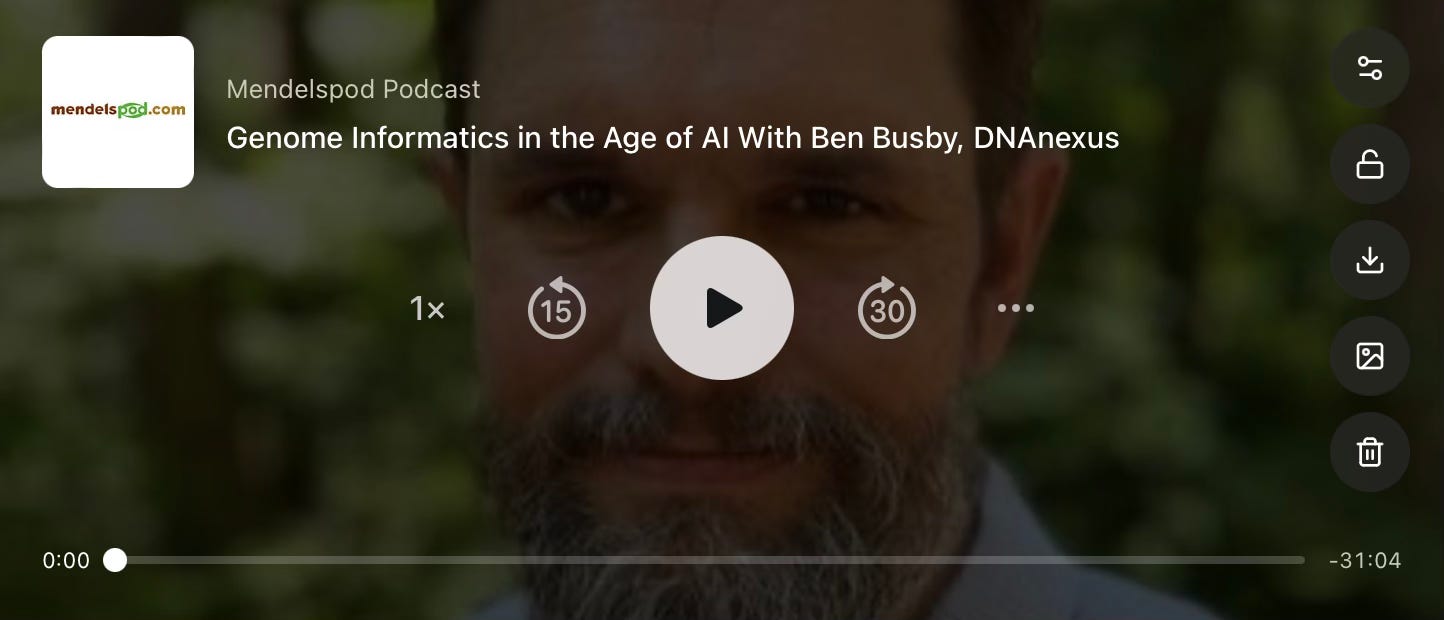Genome Informatics in the Age of AI With Ben Busby, DNAnexus
Co-produced with GenomeWeb
Today we begin a new series co-produced with GenomeWeb on the state of genome informatics. To do that, we’re joined by Ben Busby, principal scientist at DNAnexus.
Chapters:
0:00 Advances in disease sub-typing
7:15 What role is DNAnexus playing?
13:00 Impact of AI
18:45 Ironically, AI is allowing us to run simpler models because data is cleaner and more harmonized
24:44 We need longitudinally resolved databases
(This is a free show for all, but registration at the GenomeWeb page required.)
Busby reflects on his journey into the field, which was influenced by key projects and experiences during his time at the NCBI and his genomics hackathons. He outlines the current genome informatics landscape, emphasizing DNAnexus' role in fostering collaboration. Busby highlights transformative movements to refine disease subtyping based on haplotype data, underscoring their potential to reshape diagnostics and research.
As for the use of the new generative AI in bioinformatics, Busby says, "It is not super good at making data into information. And it’s not particularly good at making information into knowledge, but it does understand something about making knowledge into impact.”
Looking ahead, he envisions a future where genome informatics drives precision medicine and fosters global collaborations leveraging more diverse genomic data. He ends with a call for longitudinally resolved databases.


